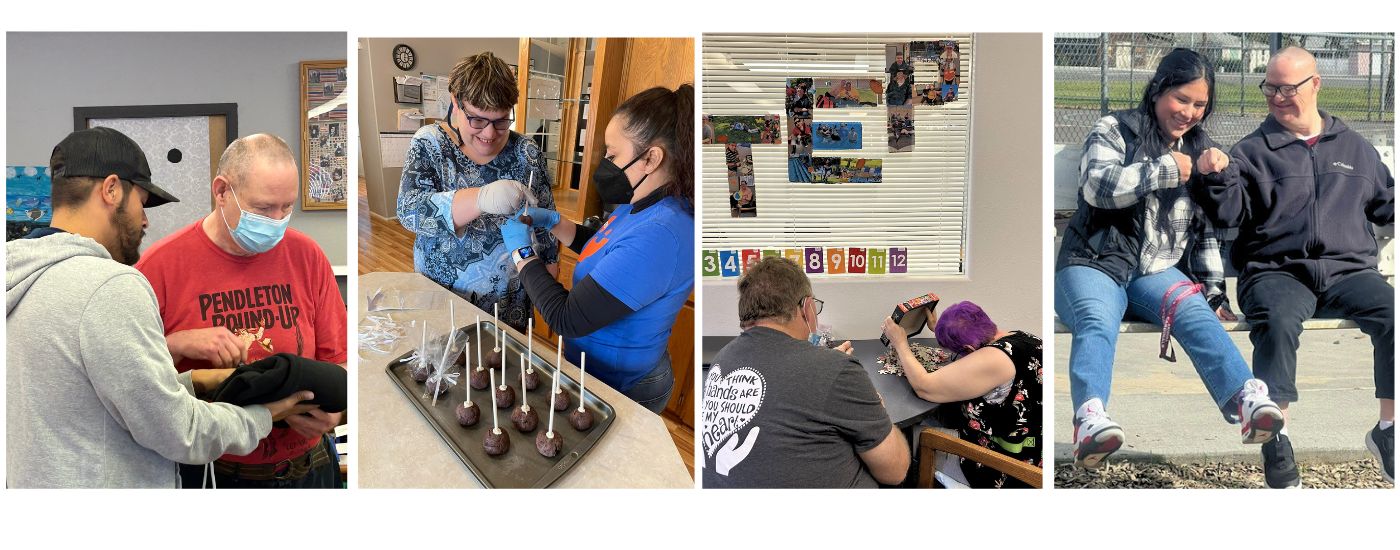
D.S.P. means Direct Support Professional.
“A Direct Support Professional (DSP) is a professional who works with people with intellectual or developmental disabilities (IDD) to help them become independent and integrated into their community. DSPs help people with IDD participate in their communities, including through employment.” [1]
“Every day across the nation, Direct Support Professionals (DSPs) play a vital role in America’s workforce and economy by providing necessary supports and services to people with disabilities of all ages, including supports related to employment.” [2]
“It’s estimated there are more than two million Americans working as Direct Support Professionals (DSPs).
DSPs are often referred to as the backbone or linchpin of the care/support system for people with IDDs. These dedicated professionals specialize in providing the services necessary for their clients to live, work, and thrive in the community with their peers and family instead of institutions. At the same time, DSPs are the expert relationship builders who connect adults with disabilities to the appropriate volunteering opportunities, jobs, religious groups, friends, and civic life.” [3]
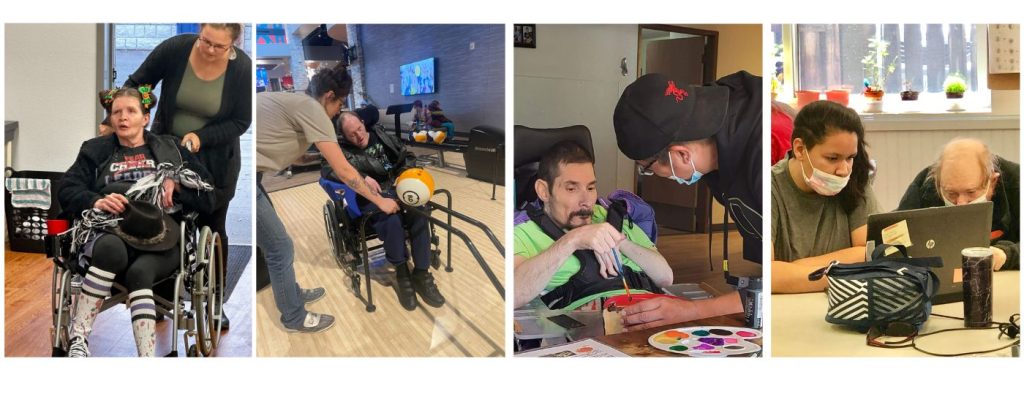
The Role of a DSP
“Historically, DSPs primarily served as caregivers for the people they supported. In the past few decades, however, the needs of those served began to change, and the roles of DSPs began to change as well. Today, the role of a DSP goes beyond caregiving and focuses more broadly on supporting people with disabilities to participate fully in their communities, live in integrated settings and seek competitive integrated employment (CIE). Some of the roles of a DSP include:
- Supporting engagement with the community by providing:
- Support in less congregate and more individualized settings
- Job coaching
- Employment support
- Transportation
- Using creative thinking for accommodations to help people with disabilities be more independent.
- Providing caregiving and support with activities of daily living, including:
- Medication administration
- Mobility assistance
- Wound care
- Accessing food
- Working with the people they support to Advocate for rights and services, such as:
- Accessing resources and opportunities in the community
- Working with the employer to customize job duties
- Providing emotional support” [2]
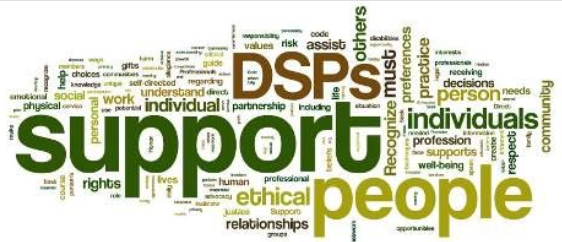
Direct Support Professional demographics and statistics in the US
- “There are over 210,771 direct support professionals currently employed in the United States.
- 75.6% of all direct support professionals are women, while 24.4% are men.
- The average direct support professional age is 47 years old.
- The most common ethnicity of direct support professionals is White (61.6%), followed by Hispanic or Latino (15.1%), Black or African American (9.7%) and Asian (8.3%).
- Direct support professionals are most in-demand in New York, NY.
- The government industry is the highest-paying for direct support professionals.
- Santa Clara, CA pays an annual average wage of $60,753, the highest in the US.
- In 2022, women direct support professionals earned 97% of what men earned.
- 7% of all direct support professionals are LGBT.
- Direct support professionals are 72% more likely to work at private companies in comparison to government companies.” [4]
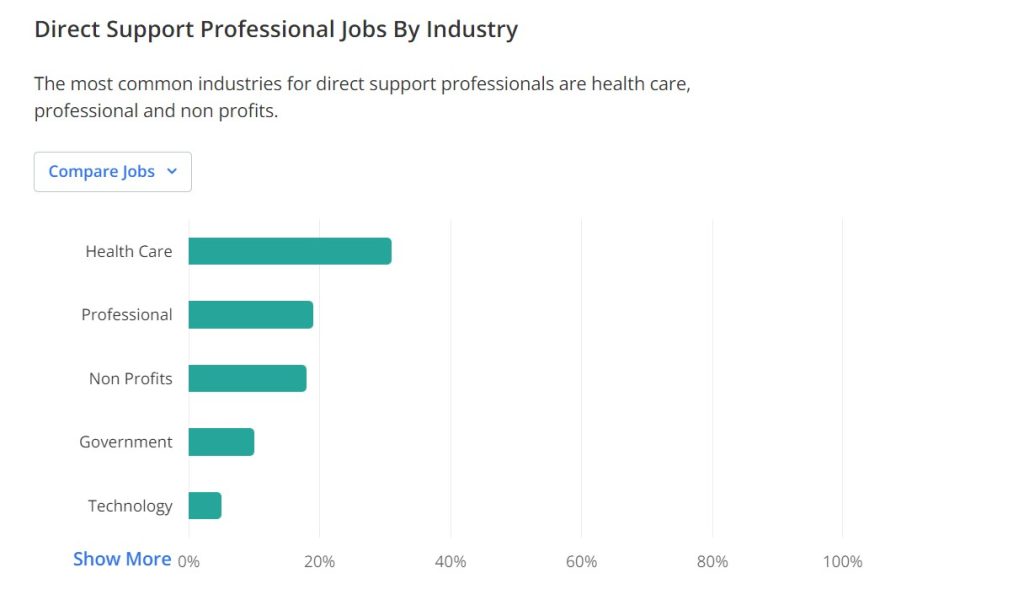
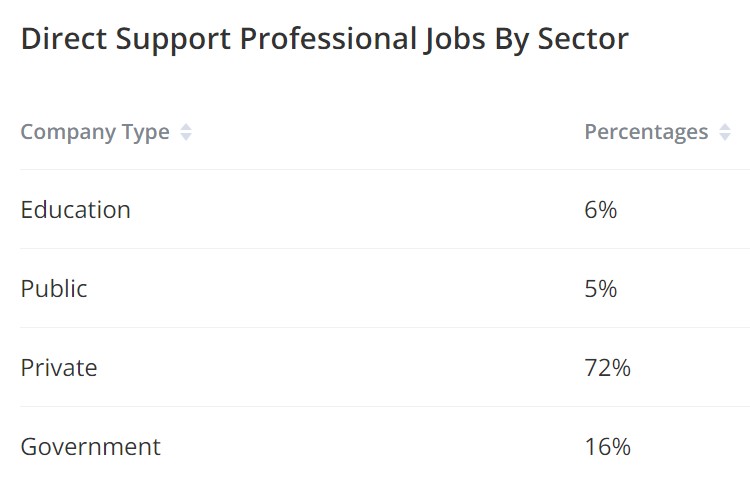
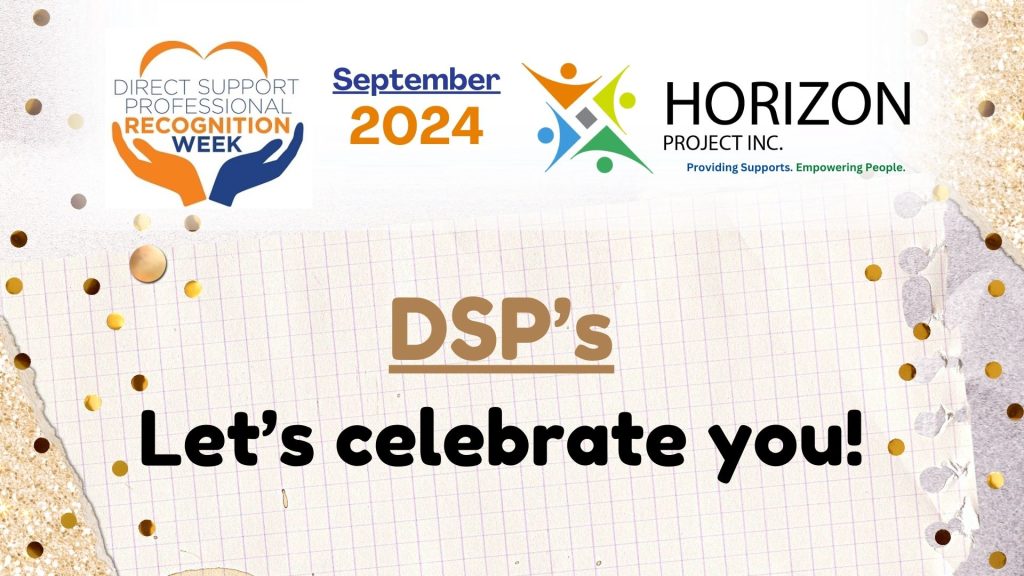
Direct Support Professional (DSP) Recognition Week
“Direct Support Professional (DSP) Recognition Week has been celebrated annually since 2008 to honor the important contributions of DSPs. The week recognizes the role DSPs play in helping people with disabilities live independently and participate in their communities.” [6]
“The NADSP co-sponsors National Direct Support Professional Recognition Week., sponsored by the United States Senate and 35 state Governors, the 2013 recognition week was the most widely accepted in its five-year history.” [6]
“Direct Support Professional Recognition Week in September is a great opportunity to highlight the dedicated, innovative direct support workforce that is the heart and soul of supports for people with disabilities. The celebrations of the DSPs at the heart of our field are part of a nationwide party we throw every year to showcase the amazing and often unsung work of these incredible professionals and mark just a small fraction of the recognition that they deserve throughout the year.” [5]
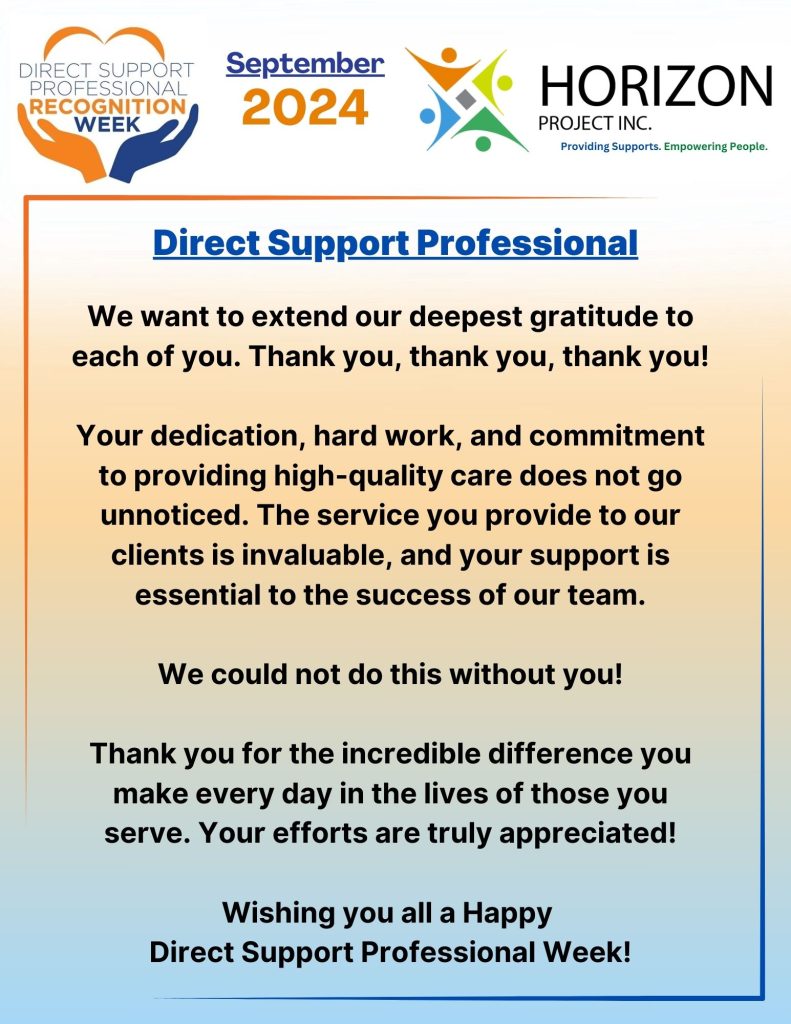
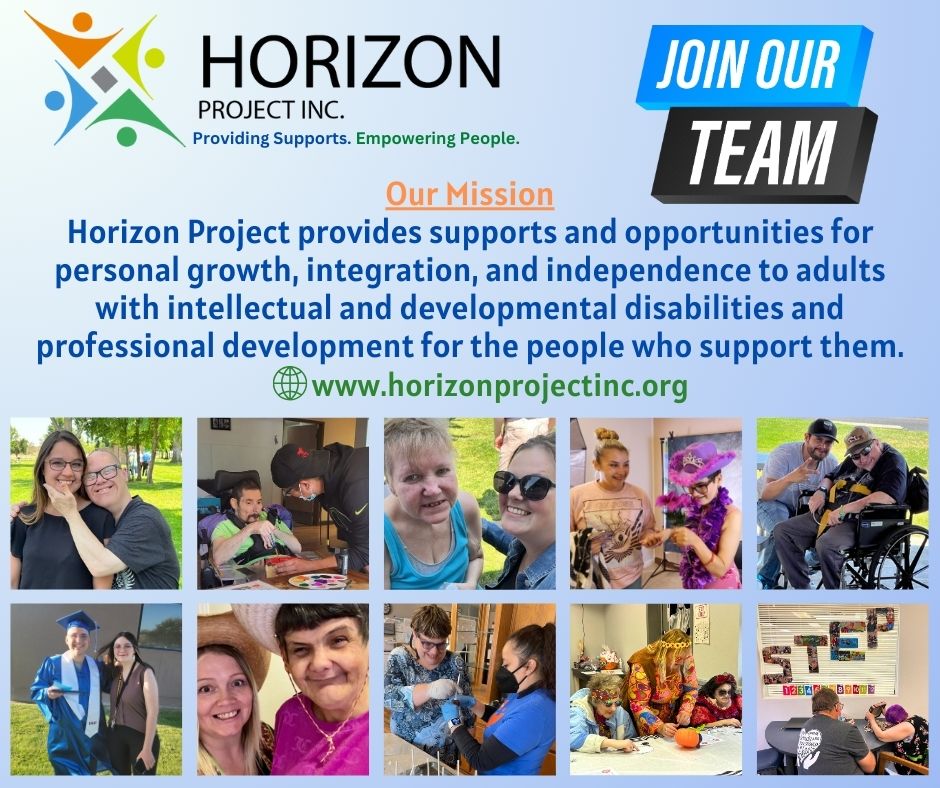
Resources
[1] Google AI
[2] https://www.dol.gov/agencies/odep/program-areas/individuals/DSP
[3] https://www.communitymainstreaming.org/blog/the-direct-support-professional-crisis/
[4] https://www.zippia.com/direct-support-professional-jobs/demographics/
[5] https://www.ancor.org/event/direct-support-professional-recognition-week-2024/
